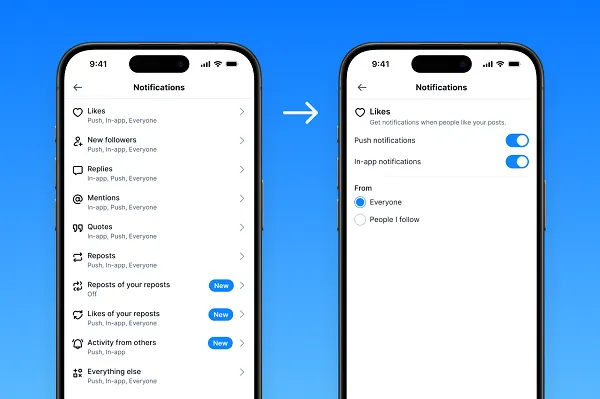Mindful Parenting Techniques for Teens
Nuanprang Snitbhan on how to help teenagers develop problem-solving skills and gain confidence. The post Mindful Parenting Techniques for Teens appeared first on Lion’s Roar.

I was born and raised in Bangkok. Then when I was fourteen, my parents sent me to the U.S. for school. When I first arrived, I struggled to learn English and assimilate into American culture. As a teenage girl, I remember desperately wanting to fit in, walking nervously into the cafeteria alone, and sitting in a biology class with no idea what the teacher was talking about.
That was my experience growing up. Everyone’s experience is different. But the teenage years have always been tough and are only becoming more so. Parenting a teen today is not as straightforward as it was in decades past. We have no map or precedent to navigate the many new challenges facing our children’s well-being, whether social, technological, or otherwise. But there are two areas to focus on that can make things a lot easier: taking care of ourselves as parents and helping to instill some essential qualities in our teens.
Even as a psychologist specializing in working with children and teens, my challenges are no different. Some days, I struggle to fight my own demons as my husband and I try to raise a happy, well-balanced, and confident daughter. I often have to face the fact that I only have so much control over who she will become over the years. There are many influences outside of my control, and she has her own karma that will unfold. Of course, I can be the best model and influence I can be, and that’s what I always come back to.
Given this, the first suggestion I can offer to parents is to be kind to yourselves. It’s important to take care of your heart as a parent because your sanity and well-being are crucial to you, your family, and other loved ones. This is easier said than done, but developing a daily self-compassion practice—which can definitely be done in conjunction with formal meditation—is essential to flourish amidst all the challenges we face as parents.
Every time you feel out of balance—sad, angry, disappointed, or guilty—remind yourself that this shall pass. When difficult moments come and emotions arise, instead of pushing them away, fighting them, or avoiding them, say, “Ha! You’re here. I’ve been waiting for you. This is hard, but my kiddo and I will be okay.”
Of course, you should educate yourself on the parenting choices you make, such as the increasing body of evidence that letting kids have smartphones before a certain age puts them at a developmental disadvantage. But beyond that, criticizing, comparing, or evaluating your parenting style, decision-making, or mistakes are the opposite of self-kindness.
One of the hardest parts of being a parent is watching my daughter struggle emotionally. Once, she came home in tears over her best friend. “Chloe was mean to me today,” she cried. My heart hurt seeing her in pain, and my first instinct was to fix it. I wanted everything to be smooth and easy for her.
But as a Buddhist practitioner, I’ve found that rather than always following my urges, I can practice being mindful by creating a space, even for a few seconds: pausing, checking in with myself, and listening to my body. When difficult moments occur, if I can focus on my breath before reacting to urges and fears, my daughter will have a chance to practice new skills.
Instead of letting my feelings rule the roost, I try to remind myself of the importance of letting my daughter learn to struggle on her own. When we’re in “fixer mode,” we might not fully hear the story, and our teens might not feel validated or heard. However, if we can let go of our urges and fears, we give them the opportunity to articulate their story. They learn to tolerate and be with difficult feelings and, with a little encouragement, can develop healthy problem-solving skills. These are crucial life skills we can offer if we, as parents, create a space within ourselves to pause and notice.
It’s also important to cultivate curiosity. As parents, we believe we know our kids, so it’s easy for us to make assumptions. Asking our teenage children to explain their point of view can reveal much more about their inner world. Like adults, young people deserve to be respected and heard. If we want them to develop their own agency and the ability to stand up for themselves, we should let them articulate what’s happening in their own words.
The challenges of technology and social media make it even more imperative that we help our teens develop an always curious mind. This mindset allows them to step back, stay open, wait, and discern rather than jumping to conclusions or taking everything at face value. A curious mind tones down negative self-talk because it engages inherent reflective abilities. The curious teen can stay mindful while learning to tolerate uncomfortable feelings about the unknown.
If teens feel safe and seen, they’re willing to open their hearts to explore what’s in front of them during difficult times. But they shut down or become reactive when feeling criticized, misunderstood, or attacked. When we as parents express curiosity about their intentions, behaviors, or decisions, we offer them the ability to self-reflect and increase their ability to tolerate discomfort. Feelings of discomfort are a part of being alive; they do not mean that something is wrong or needs to be fixed. Adopting an always curious attitude can foster confidence and trust, open more opportunities to connect, and strengthen your relationship with your teenage kids.

Nuanprang Snitbhan is a child psychologist, mother, and the author of Girl Time: A Mother-Daughter Activity Book for Sharing, Bonding, and Really Talking.

 AbJimroe
AbJimroe 






























